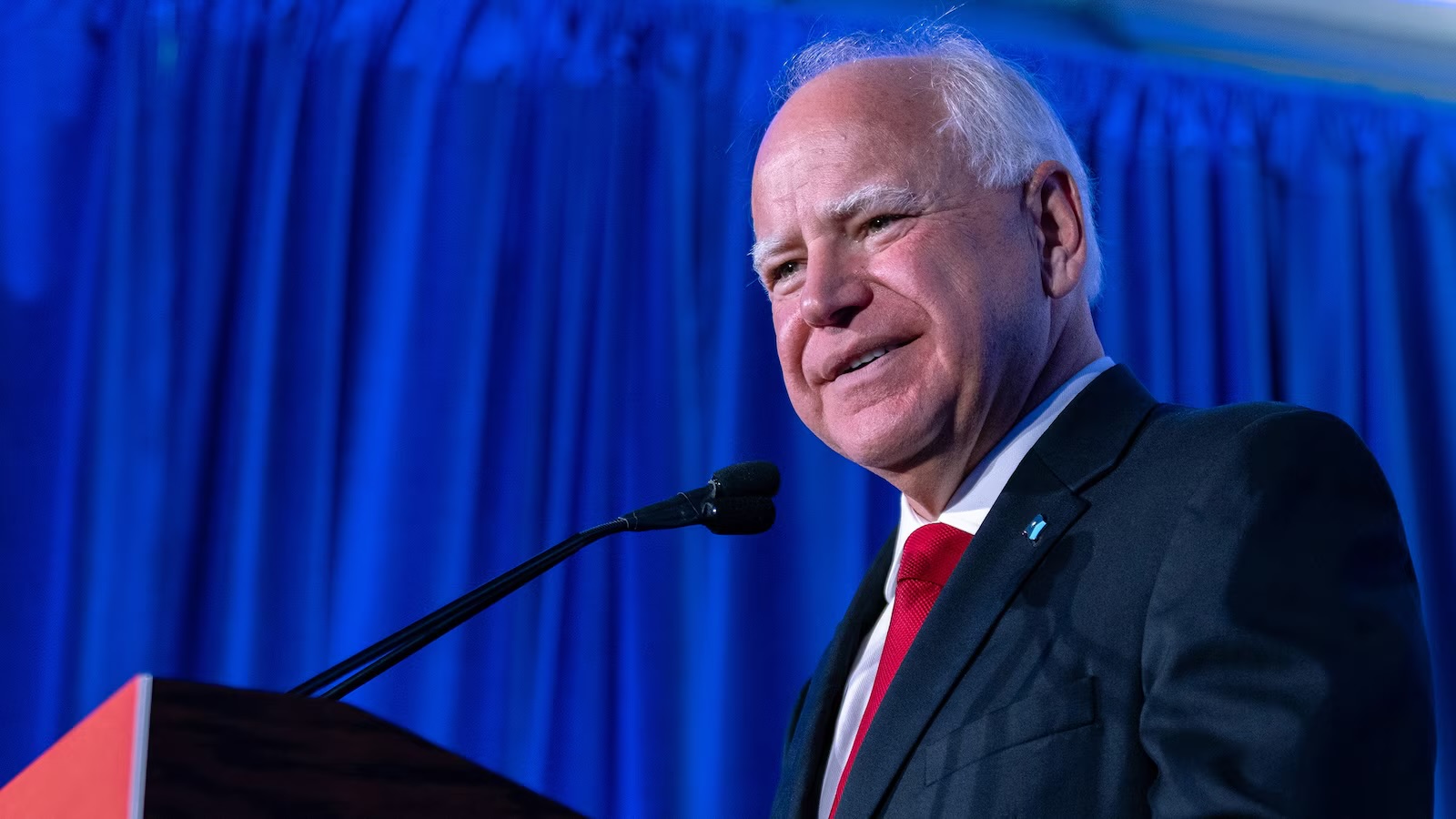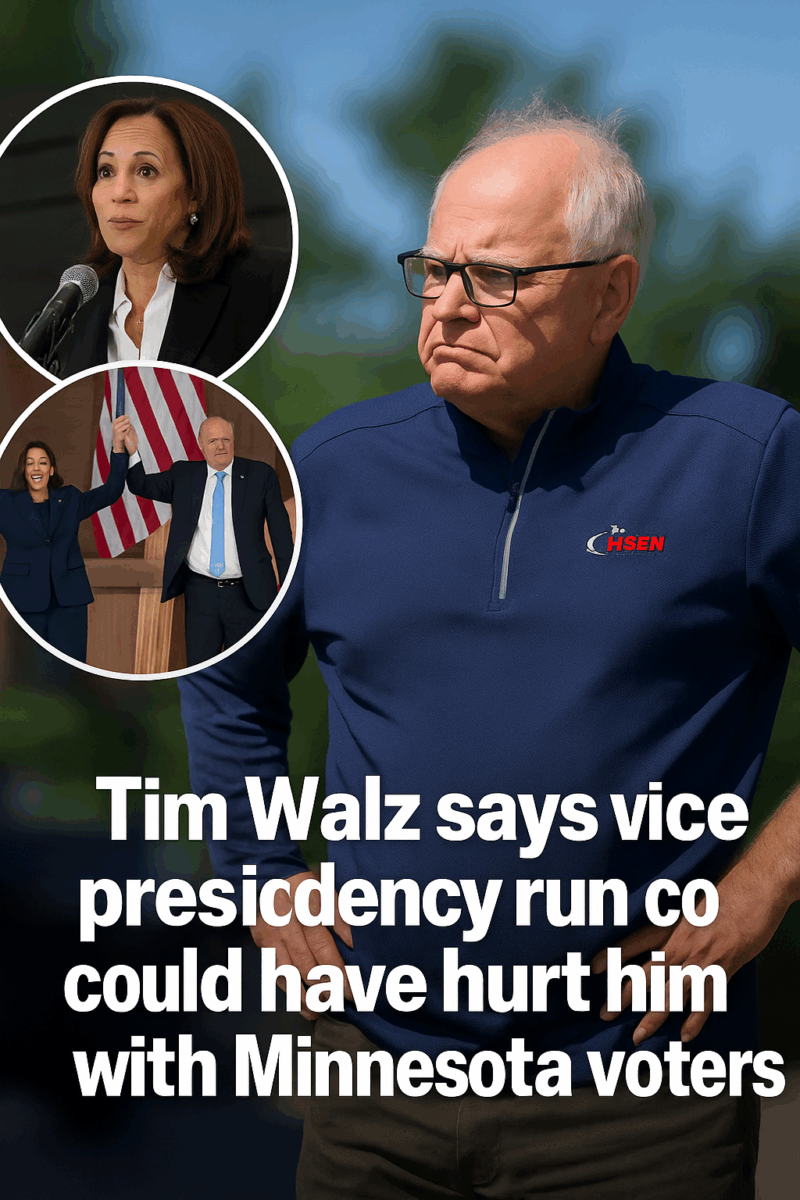Minnesota Governor Tim Walz has openly acknowledged that his short-lived vice-presidential run in 2024 may have come at a cost to his relationship with voters in his home state. In a candid interview, Walz admitted that his decision to step onto the national stage with former Vice President Kamala Harris could have created an impression of arrogance or disconnection, potentially hurting his image with Minnesotans. His remarks provide a rare glimpse of self-reflection from a leading political figure who has been both praised and criticized for his rapid rise in U.S. politics.
Walz Reflects on His Campaign
Speaking to The Wall Street Journal, Walz shared that he sometimes gets “tired of myself,” a strikingly honest admission for a sitting governor. He explained that political campaigns, especially at the national level, can create fatigue not only for the candidates but also for the voters who follow them. According to Walz, voters might feel overwhelmed by the constant exposure to a candidate, leading them to desire fresh leadership or a change in direction.
Impact on Minnesota Politics
Walz’s remarks highlight a critical challenge for politicians who straddle both state and national ambitions. While his vice-presidential bid with Kamala Harris was short, lasting only 91 days, it appears to have left lasting effects. A recent poll revealed that Walz’s approval rating in Minnesota dropped to 49%, with nearly half of respondents saying they would oppose him if he sought a third term as governor in 2026. These figures suggest that his association with national politics may have weakened his standing at home.

Voter Sentiment at the State Fair
At the Minnesota State Fair, several voters voiced their opinions directly to Walz. Some expressed that they respected his service but hoped for new leadership, while others suggested that prominent figures like Senator Amy Klobuchar might better represent the state’s future. These interactions show how Minnesotans are increasingly divided about Walz’s role moving forward.
Balancing National and Local Roles
For Walz, the challenge lies in reconciling his national visibility with the expectations of local voters. While being chosen as a running mate for Kamala Harris elevated his profile, it also raised concerns that he might be more focused on Washington than St. Paul. This tension between state loyalty and national ambition is not new in American politics, but Walz’s acknowledgment of the risk demonstrates unusual political honesty.
Looking Ahead
As Walz considers whether to run for a third term in 2026, his ability to reconnect with Minnesota voters will be crucial. Analysts suggest he may need to focus more on bread-and-butter issues affecting Minnesotans, such as healthcare, education, and the economy, to rebuild trust. Whether his past national ambitions will remain a liability or become a stepping stone to higher office is a question that only future elections will answer.


